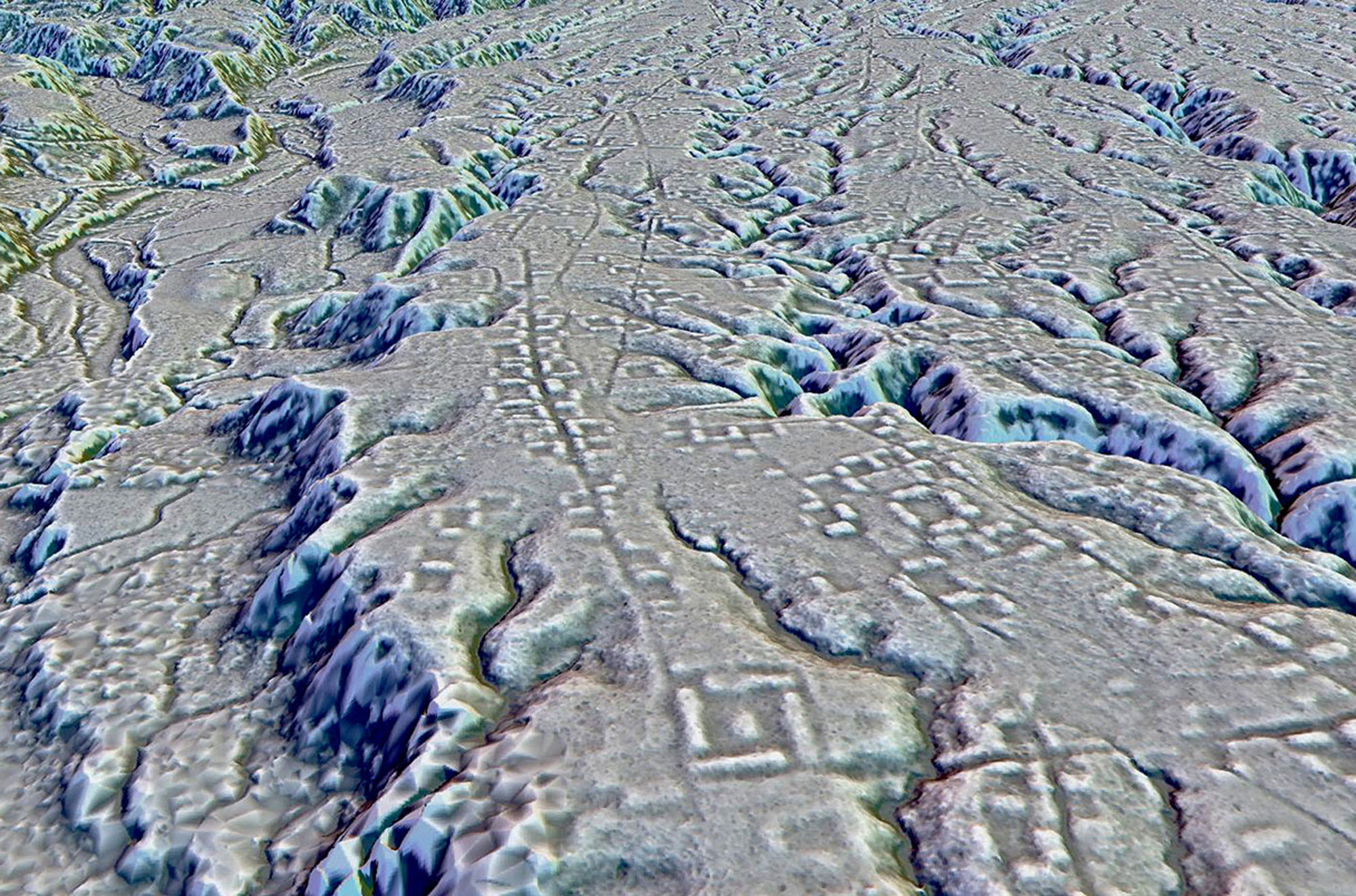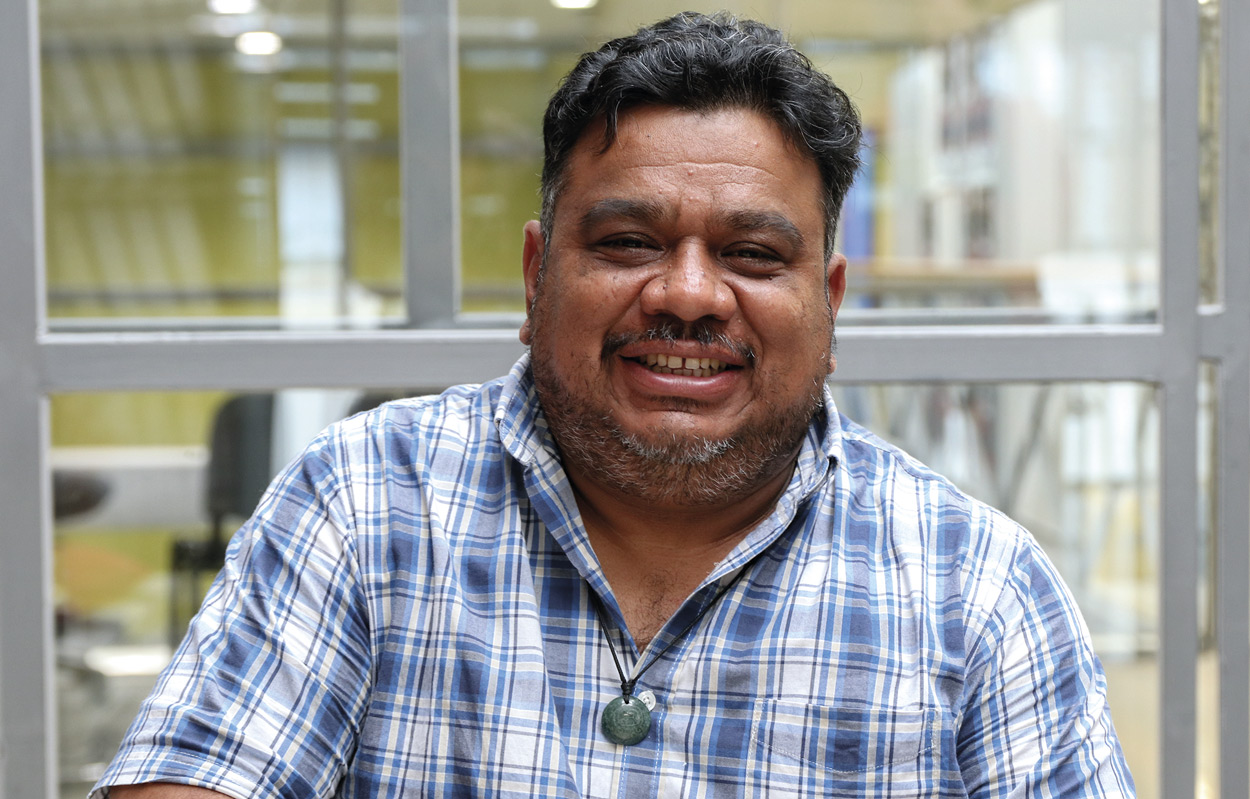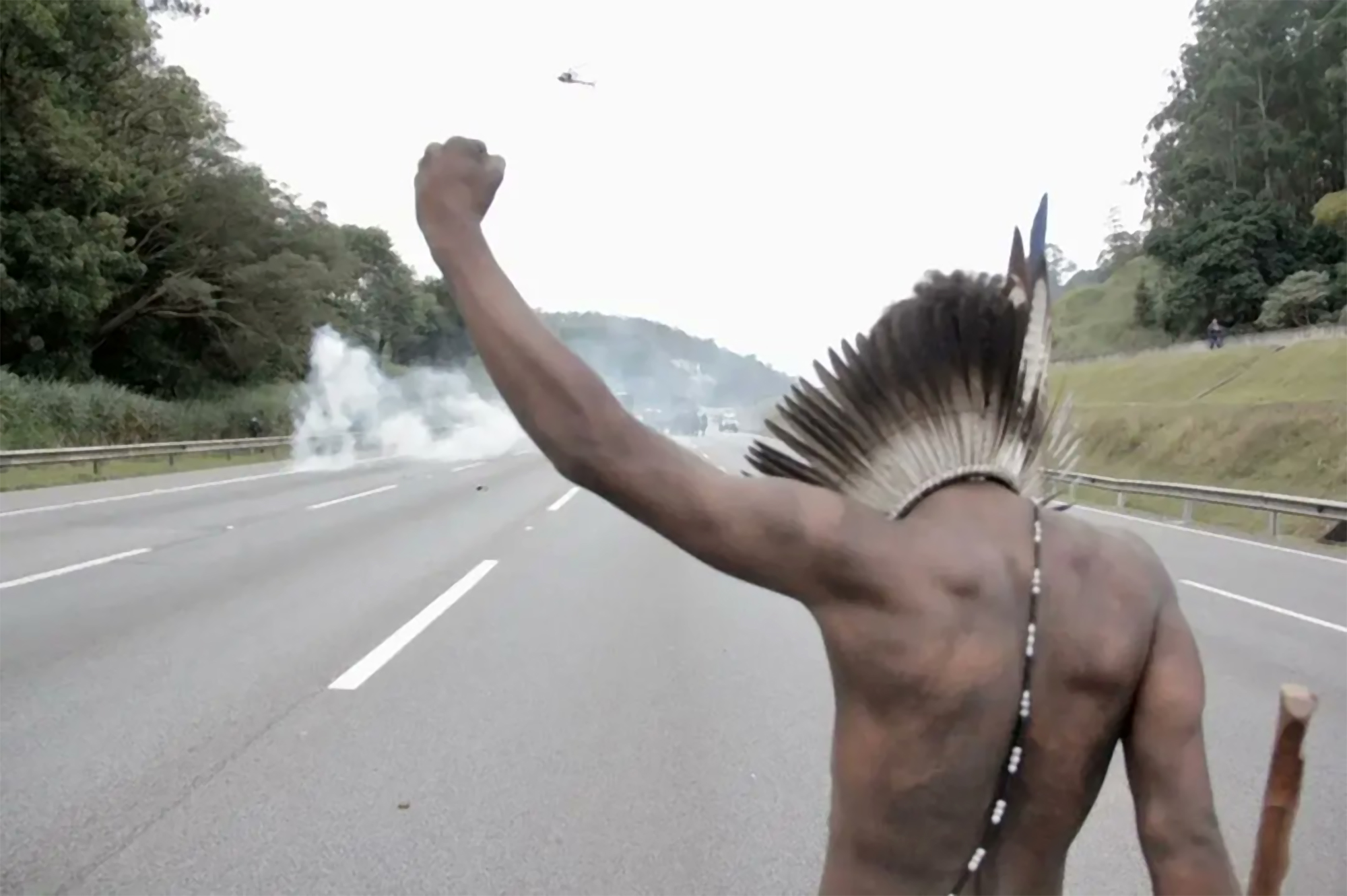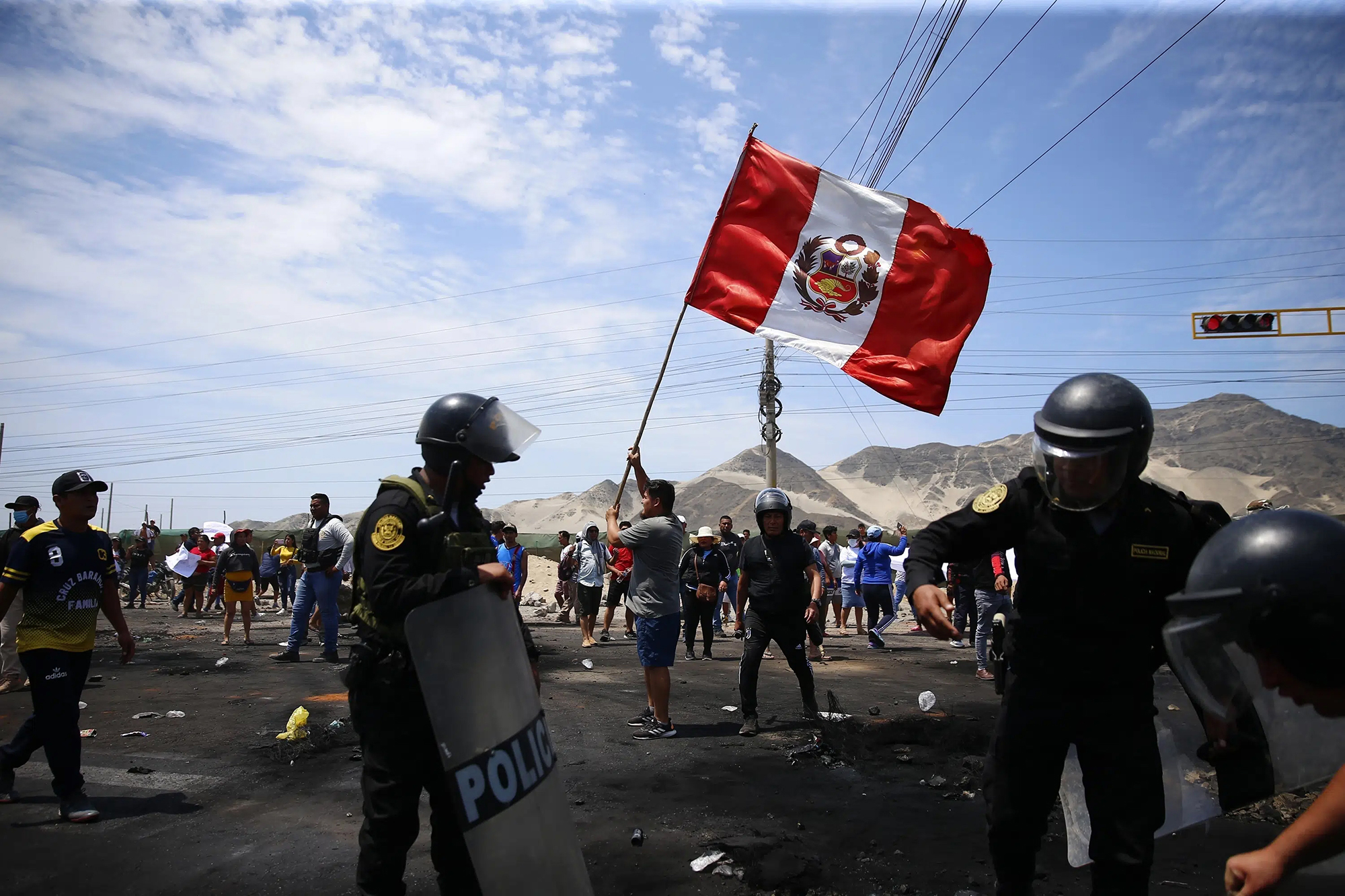"Ignorance about the reality of the indigenous peoples of Canada and Quebec is the protagonist"
- Widia Larivière, a young woman with a Quebetan father and a Algonquin mother, regrets that the indigenous peoples of Canada and Quebec are in a deep identity crisis. However, in recent years, the feeling of pride is flourishing: “It is true that many have begun to look differently at identity denigrated by colonization and racism.” Lariviére looks to the future with optimism.
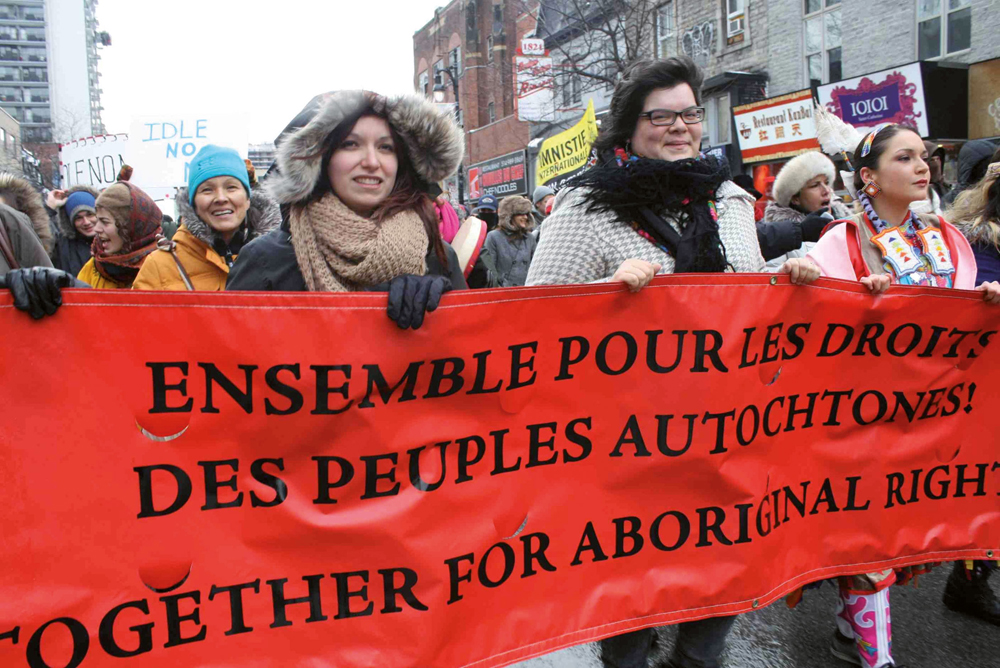
You're in the creators of the Quebetan movement Idle No More.
The movement was born in the fall of 2012 with four women, three indigenous and one Canadian. We organized ourselves to obstruct some bills that led to the violation of the rights we have of our ancestors and the deterioration of our territories. The movement quickly spread across Canada. Idle No More is the embodiment of the red protest that has been provoked by a long history of oppression and colonization.
It's women in the front line. Is it a brand that goes hand in hand with patriarchal colonialism?
It's true that women were at the head of the movement, whether it's organizers or spokespeople, and women were always on the front line. It was done naturally. The reason is clear: colonization has always affected women more, as well as being indigenous, we have more challenges to overcome because we are women. Colonization is rimmed with patriarchy. Women are not sufficiently represented in political bodies, in federal structures or in the most indigenous structures, because they have lost the power they had before colonization. That's why we're active outside of colonial political structures, because we want to recover lost power.
What is the awareness of this colonization among non-indigenous people?
On the part of the Quebequeses I have had to deal with many situations of ignorance, it has dominated our culture and our ignorance of the realities. Ours is not taught in school, in history courses there is very little talk. This ignorance leads to racist prejudice and discrimination. But I think the situation is improving, though, because, among other things, the Idle No More movement came to the conclusion that it was aware. There is greater openness to indigenous issues if it is a desire to learn more about reality. A new situation started. If we want to break the walls between autochthonous and non-native, we must continue to work fast.
Idle No More was also a tool to relive the pride of being indigenous.
Many have begun to look differently at identity denigrated by colonization and racism. Yes, really, the feeling of pride helped him to revive, and that's great. It was pride and desire to get involved in the community. An example of this was the march of Nishiyuu that young people from the town of Cris made from northern Quebec to Ottawa. Of course, the manifestation served to make the claims heard, but it also served to do personal work identity.
Could you say that young people are proud to be indigenous?
A change of level is taking place. It has not been ineffective to have heard for years that we do not serve at all and that we have to disappear. We're in an identity crisis. That is why many are in full consultation on identity. But I think with optimism and pride, many people want to reclaim their native identity. We are redefining that identity. Despite the effects that the old regime has left on its conclusions, we are looking backwards. We live in modernity, we change our culture and our languages, always taking care of the roots. I really trust young people, because we have the ability to take the future into our hands.
Although not as evident as in other times, cultural genocide is still present.
We have not suffered the violent traumas suffered by our parents and grandparents, but we are suffering the consequences. We live personally the influences of cultural genocide through barnetegis. The transmission of language and culture is wobbling and we have a need to protect and revive it.
What's your emergency challenge?
That is a good question and I can say that there are many. The problem of indigenous peoples lies in the violation of the right to self-determination, since we have always maintained a colonialist, unbalanced and paternalistic relationship with Governments. If this right of self-determination is not respected, it will be political differences. From a social point of view, we are immersed in collective healing. We have to take some time to heal ourselves from the black story we've lived. We have to look at that story if we want to understand what we are, without turning our backs on the present and the future. We also have to make our history known to Quebequeses and Canadians, because racism has its unknown roots.
49 urte preso pasa ondoren, libre utzi dute Leonard Peltier AEBetako ekintzaile autoktonoa. Otsailaren 18 honetan heldu da bere senide eta lagunen artera 80 urte dituen preso-ohia.
Oinarrizko maia komunitateko U Yich Lu’um [Lurraren fruitu] organizazioko kide da, eta hizkuntza biziberritzea helburu duen Yúnyum erakundekoa. Bestalde, antropologoa da, hezkuntza prozesuen bideratzaile, eta emakumearen eskubideen aldeko aktibista eta militante... [+]
It is no coincidence that Columbus Day, that of the Civil Guard and the Virgen del Pilar coincided on that date. The three represent oppressive structures (statue, army and church). On the other hand, there is indigenous resistance and population that the Spanish State... [+]
When in the 16th century the Spanish conqueror Francisco de Orellana sailed the Amazon River, he said that there were big cities on both sides of the river. Few believed then, let alone in the following centuries, when no trace of what the conquest itself had destroyed was... [+]
On March 23, the prestigious French publisher Seuil launched a new literary section called “Indigenous Voices”. On the web Un livre dans ma valise (A book in my beacon), the director of the section Laurence Baulande explained that then the aim of the project is to publish... [+]
Pasa den abendutik Perun gertatzen ari diren istiluak, herrialdearen egoera politiko ahularekin lotu dituzte munduko hedabide nagusiek. Pedro Castillo presidente ezkertiarraren noraeza, haren kargugabetzea, Andeetako eskualdeetako herritarren altxamendua eta haien kontrako... [+]














